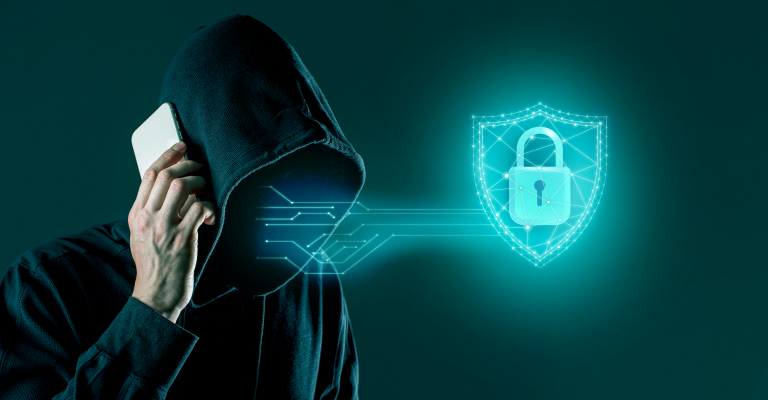What Is Everycred and Its Mission?
How EveryCRED does online certificate verification through Blockchain
Here’s why EveryCRED is pre-eminent self-sovereign identity platform
Emphasizing the Significance of EveryCRED in Revolutionizing Identity Verification
Spot for Closure & Communication
Post the covid lockdown, everything started getting digitalized at an accelerated pace, to make things easier and faster for users.
However, major threats like identity thefts, password leaks, cyber-attacks and transaction frauds are also increasing day by day which compromises personal and vulnerable data and hence it becomes important for individuals and businesses to protect data and privacy when integrating digitally.
Blockchain-based solutions like verifiable credentials and decentralized identity protect data privacy, share data with user-consent, and secure transactions, while enhancing the user experience.
Decentralized identity, also known as self-sovereign identity, is a user-centric form of identity that allows users to create, own, and manage their own identity.
The foundation of decentralized identity is a distributed ledger or blockchain. Businesses register their publicly listed DIDs on the blockchain and have control over them.
Understanding the Need for Self-Sovereign Identity
In today’s digital world, identity theft and fraud are becoming more common. Traditional identity verification methods are no longer sufficient.
Self-sovereign identity provides a solution to these problems by giving individuals control over their digital identity.
EveryCRED recognizes the need for a more secure and user-centric approach, allowing individuals to present their verifiable credentials without exposing their sensitive personal information.
Certificate Authentication Problems and Solution
Certificate authentication is a widely used security method to verify the identity of users, devices, or services in various online interactions.
However, the traditional process of verifying certificates involves a lot of paperwork, time, and effort. It’s also vulnerable to fraud and error.
Some of the common certificate authentication issues and their solutions are as follows:
Expired Certificates
Problem: Certificates have a validity period, and if not renewed or updated, they can expire. This results in authentication failures.
Solution: Regularly monitor certificate expiration dates and set up automated alerts for renewal.
Misconfigured Certificates
Problem: Incorrect configurations can lead to authentication issues. This includes using the wrong certificate, specifying incorrect parameters, or mismatched settings between the client and server.
Solution: Review and validate certificate configurations for both client and server sides. Double-check common issues like the certificate’s common name (CN) matching the hostname.
Trust Chain Issues
Problem: Trust chains are a series of certificates used to verify the authenticity of a certificate. If any certificate in the chain is missing, expired, or not trusted, it can disrupt authentication.
Solution: Ensure that the full trust chain, from the server certificate to the root Certificate Authority certificate, is available and correctly configured on both client and server sides.
Invalid or Untrusted Certificate Authority
Problem: Certificates signed by untrusted or improperly configured CAs can lead to authentication problems. Clients may not trust the CA that issued the certificate.
Solution: Use certificates issued by well-known and trusted CAs. Ensure that your CA is correctly configured and widely recognized.
Fraudulent Certificates
Problem: Attackers can create fraudulent certificates that appear genuine, making it difficult to distinguish between legitimate and fake ones.
This can result in unauthorized access to systems, data breaches, and compromised security.
Solution: Implementing a robust Public Key Infrastructure (PKI), which includes a trusted certificate authority, can help address this issue.
By utilizing a trusted third-party to issue and verify certificates, organizations can reduce the risk of fraudulent certificates.
Certificate Tampering
Problem: Certificates can be tampered with during transmission or storage, posing a significant threat to the integrity of the authentication process.
Solution: By digitally signing certificates and their contents, any modification can be detected.
Upon receipt of a certificate, its signature and hash values are compared with the originals to ensure its integrity.
If tampering is detected, the verification process fails, indicating a potential security breach.
EveryCRED solves these problems by providing a system to online certificates verify that it is fast, easy, and secure.
- What Is Everycred and Its Mission?
EveryCRED is a revolutionary platform that leverages blockchain technology to provide online certificate verification services.
It is a platform that allows individuals and organizations to create, manage, and verify digital identities and credentials.
Its mission is to provide a secure, temper-proof, decentralized, and user-centric approach for credential verification.
By leveraging blockchain technology, EveryCRED ensures that identities and credentials are tamper-proof, immutable, and easily verifiable and it also aims to build a foundation of trust in the digital world and empower individuals with self-sovereign identity.
- How EveryCRED does online certificate verification through Blockchain
EveryCRED uses blockchain technology to ensure that the verification process is secure and tamper-proof.
When you upload your certificates to the platform, they are encrypted and stored on the blockchain. This ensures that they cannot be altered or deleted without your permission.
When someone requests to verify your certificate, EveryCRED uses smart contracts to authenticate the request and provide the necessary information.
Each user is assigned a unique identifier called a Decentralized Identifier (DID). These DIDs have cryptographic material associated with them, which helps in verifying the users’ authenticity and the credentials they possess.
EveryCRED follows its own DID method known as EVRC. To strengthen decentralized identity, users can acquire digital credentials from various issues such as government organizations or educational institutes.
- Here’s why EveryCRED is pre-eminent self-sovereign identity platform
EveryCRED is a self-sovereign identity platform, which means that you have complete control over your digital identity.
You can create, manage, and share your identity and credentials without the need for central authority.
These credentials are stored in a digital identity wallet and can be digitally presented to other organizations for verification. The blockchain-powered decentralized identity system enables the realization of digitally verifiable credentials.
Emphasizing the Significance of EveryCRED in Revolutionizing Identity Verification
EveryCRED is at the forefront of the self-sovereign identity revolution. Its blockchain-powered platform provides a secure, decentralized, and user-centric approach to identity verification.
It works by using cryptographic signatures to create verifiable credentials (VCs) that can be used to prove a user’s identity or attributes.
VCs can be issued by trusted entities, such as governments, businesses, or educational institutions. Once a user has a VC, they can share it with others in a secure and verifiable way, without having to disclose any underlying personal information.
Users are in control of their own digital identities. They can decide who they want to share their VCs with and what information they want to share.
This can help to reduce the amount of personal data that is collected and stored by businesses and organizations.
Spot for Closure & Communication
EveryCRED is the solution to your certificate authentication problems. It allows Online certificates verify fast, easy, and secure.
With us, you can trust that your data is secure, private, and only accessible by trusted parties.
It is not just a platform; it’s a movement towards a safer, more secure, and user-controlled digital identity.
It’s time to embrace the power of self-sovereign identity and discover the significance of EveryCRED in this digital transformation.

 10th November, 2023
10th November, 2023 


